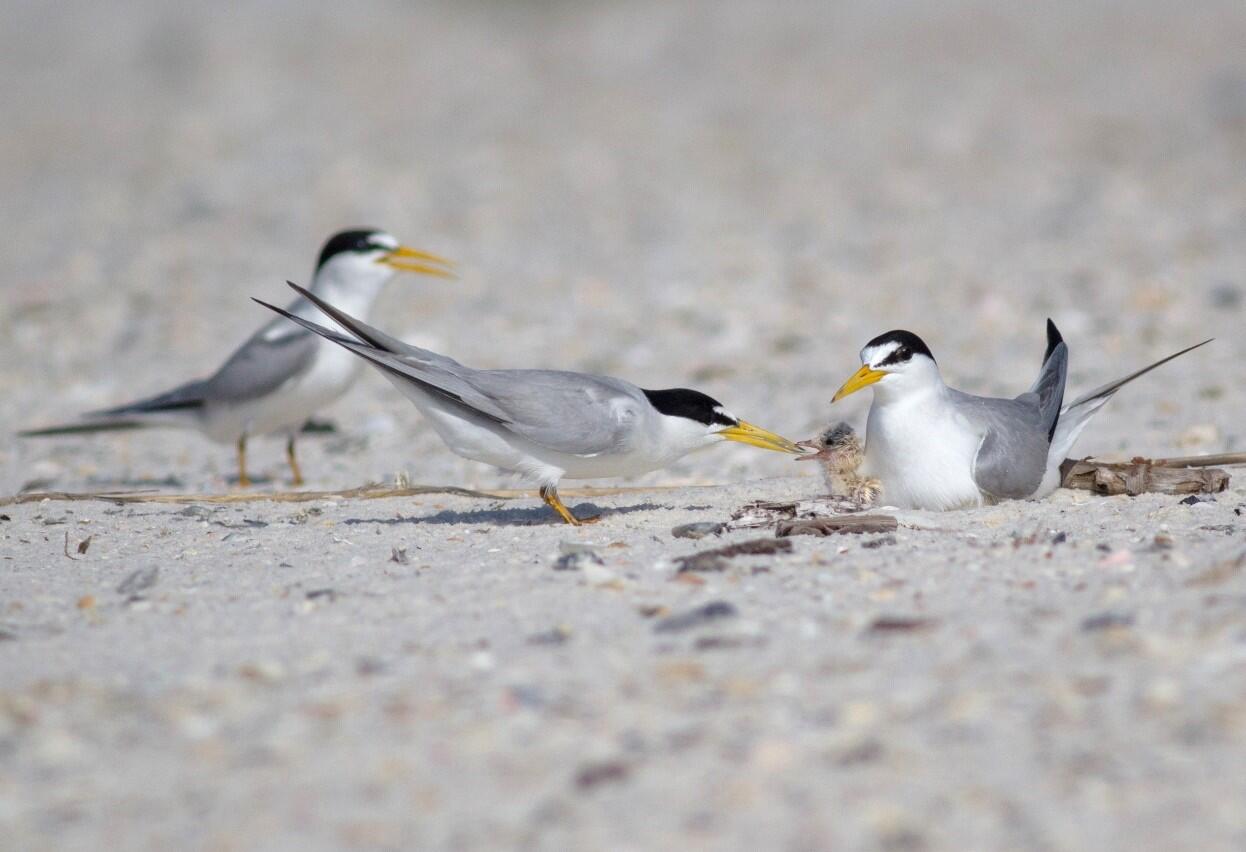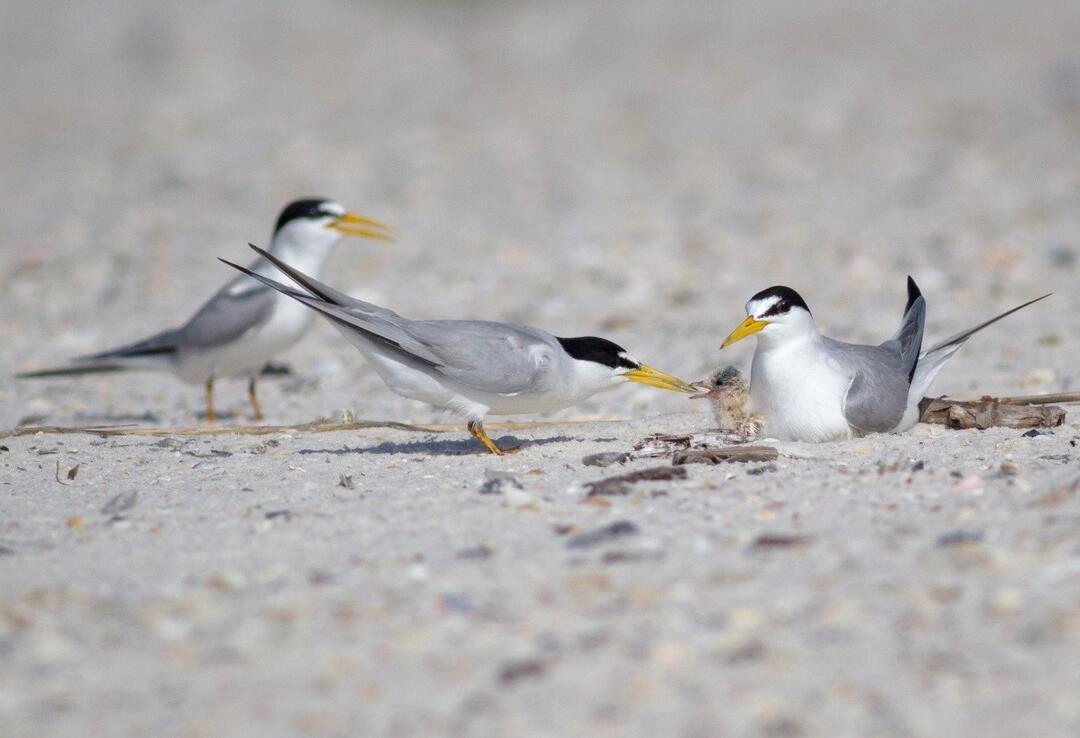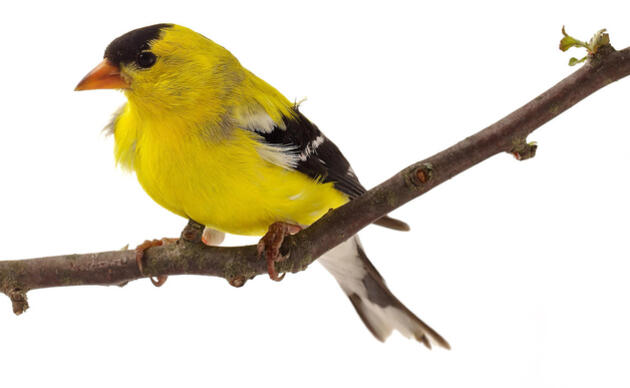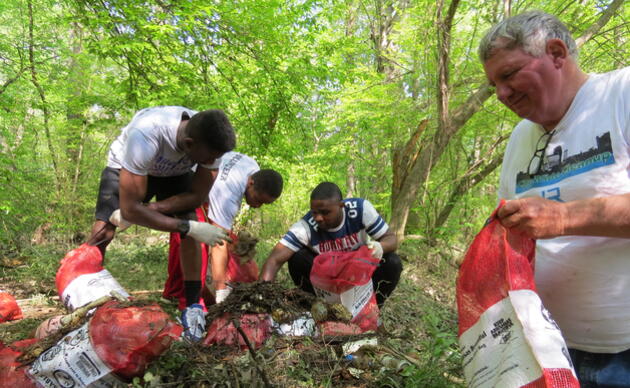Summer has officially arrived, and the 4th of July holiday weekend is a busy one for both birds and people. As many people are looking to their local beaches for a reprieve from staying at home during the COVID-19 pandemic, thousands of shorebirds and seabirds are currently nesting along the Gulf Coast. Their chicks are tiny and camouflaged, which makes it tough for beachgoers to spot them, nestled on the bare sand or under vegetation. It is important to remember that while we enjoy our temporary getaways at the beach, we must #ShareTheShore with our beach-nesting birds, such as Least Terns, Black Skimmers, and Wilson’s Plovers, who call our coast home.
At the peak of this current nesting season, Mississippi’s Least Terns and Black Skimmers were devastated by storm surge and flooding from Tropical Storm Cristobal as it made landfall nearby in southeastern Louisiana on June 7. In addition to natural threats such as hurricanes and predators, beach-nesting birds face a suite of other challenges, many of which are human-induced. This includes vehicular traffic, kites, off-leash dogs, and firework displays on crowded beaches. These disturbances can cause adult birds to abandon their nests or chicks, which can ultimately lead to chicks starving, getting eaten by a predator, or overheating in the sun. This 4th of July weekend, many birds are re-nesting and will have their final opportunity to successfully raise young this season.
Unfortunately, fireworks and celebrations on our beaches can do serious damage to these vulnerable birds. In Mississippi for example, many people gather on our beaches at night to watch official fireworks displays or even shoot fireworks of their own. The loud noises and bright lights that fireworks bring are extremely disruptive to birds, and walking the beach at night can make it difficult to see the signs and fencing that mark beach-nesting bird colonies. Here in Louisiana and Mississippi, we ask everyone to be good stewards of the beach and give these birds a chance at successfully raising their floofy chicks.
Here’s how to share the shore this July 4th weekend:
- Watch for and respect posted nesting areas with fencing and signs
- Keep a safe distance from nesting areas
- Obey all existing laws such as speed limits, keeping off the dunes, and no littering
- Adhere to no dog ordinances and leash your pets if permitted
- Participate in organized firework displays. Do not light fireworks near posted bird colonies.
- Do not approach, chase, or scare off large flocks of birds
As you plan your weekends and holiday celebrations this summer, please keep in mind that we are just visitors of the beach and share these prized spaces with many coastal species that rely on them for survival. Together, we can all be strong advocates for the birds and coastal habitats we love, and ensure a brighter future for our coastal communities and our feathered friends alike.
By Katie Barnes (Audubon Louisiana) and Melinda Averhart (Audubon Mississippi)







